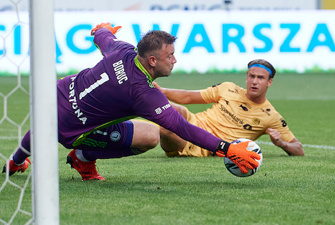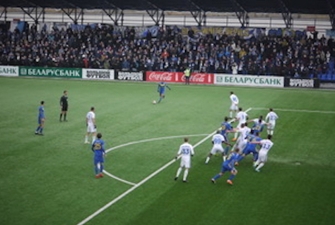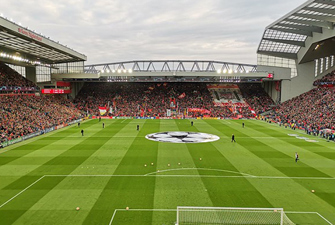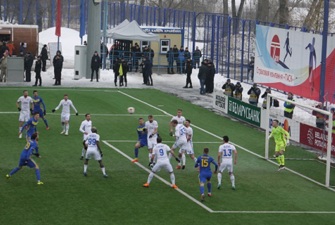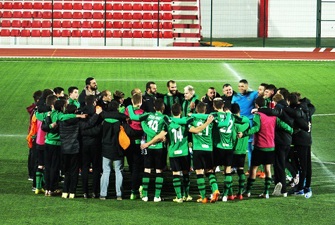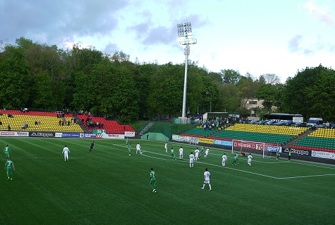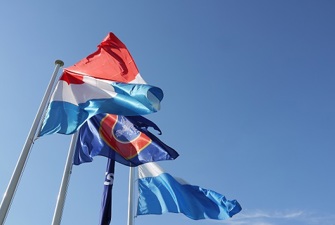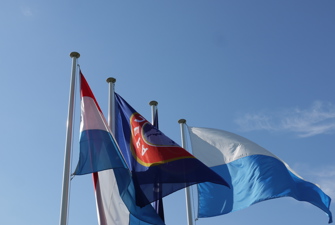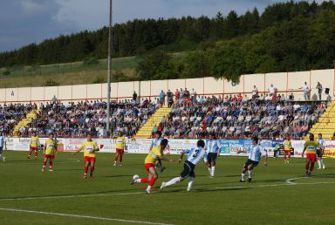UCL Diversity Index 2023/24:
Despite a few newcomers, UEFA's Champions League is less diverse than ever
Play the Game's Champions League Diversity Index now covers 30 years and shows that the competition is increasingly dominated by the same clubs.
The 2023 edition of Play the Game's Champions League Diversity Index for UEFA's Champions League shows signs of some diversity emerging on the fringes of the league with a handful of smaller teams appearing in the early stages. However, the money-spinning main competition continues to be dominated by the major leagues and a handful of larger clubs.
In 2023/24, a total of 13 new clubs made their debut in the league. 11 of these clubs had to go through a qualifying system that offered just six group stage places to 51 competing teams, while Sevilla and Union Berlin passed direct to the lucrative group phase of the competition due to UEFA rules that protect larger clubs and leagues. Sevilla qualified after winning last season’s Europa League, while Union Berlin gets a group stage slot courtesy of UEFA rules that favour major leagues, particularly those in England, Spain, Italy, Germany and France.
Figure 1: Number of new Champions League entrants
| Season | Number |
| 2023/24 | 13 |
| 2022/23 | 7 |
| 2021/22 | 4 |
| 2020/21 | 6 |
| 2019/20 | 8 |
| 2018/19 | 3 |
| 2017/18 | 12 |
| 2016/17 | 10 |
| 2015/16 | 7 |
| 2014/15 | 5 |
| 2013/14 | 9 |
| 2012/13 | 11 |
Over the past 12 years, just nine Champions League (UCL) debutants have reached the group stages and six of those including Union Berlin were gifted places due to UEFA’s changes aimed at supporting stronger leagues and pacifying the European Clubs Association.
Less and less diversity over the past 30 years
Since 2009, Play the Game's diversity index has been measuring diversity and competitive balance in the UCL. It works by dividing the total UCL appearances for each nation by the number of different clubs that took up those entries to give a national figure. The higher the index score, the lower the diversity.
The first survey in 2009 covered the previous 15 years back to 1994/95, when structural changes to the old European Cup ushered in the modern UCL. The average figure for the whole index back in 2009 was 3.44.
With the most recent survey, the index covers 30 seasons of the competition up to 2023/24, and now the average index figure is 5.38 which illustrates how the competition is increasingly dominated by the same clubs.
Figure 2: Play the Game Champions League Diversity Index 2023/24
(higher index score = less diverse)
| Country | Total apps | Clubs | Index |
| Greece | 55 | 4 | 13,75 |
| Ukraine | 54 | 4 | 13,50 |
| Scotland | 43 | 4 | 10,75 |
| Croatia | 32 | 3 | 10,67 |
| England | 106 | 10 | 10,60 |
| Portugal | 70 | 7 | 10,00 |
| Spain | 111 | 12 | 9,25 |
| Holland | 61 | 7 | 8,71 |
| Italy | 102 | 12 | 8,50 |
| Turkey | 55 | 7 | 7,86 |
| Serbia | 28 | 4 | 7,00 |
| France | 82 | 12 | 6,83 |
| Czech Republic | 47 | 7 | 6,71 |
| Belgium | 52 | 8 | 6,50 |
| Austria | 43 | 7 | 6,14 |
| Germany | 98 | 16 | 6,13 |
| Russia | 55 | 9 | 6,11 |
| Luxembourg | 28 | 5 | 5,60 |
| Bulgaria | 27 | 5 | 5,40 |
| Lithuania | 27 | 5 | 5,40 |
| Moldova | 27 | 5 | 5,40 |
| Israel | 31 | 6 | 5,17 |
| Gibraltar | 10 | 2 | 5,00 |
| Cyprus | 30 | 6 | 5,00 |
| Switzerland | 43 | 9 | 4,78 |
| Wales | 27 | 6 | 4,50 |
| Denmark | 36 | 8 | 4,50 |
| Estonia | 27 | 6 | 4,50 |
| N Ireland | 27 | 6 | 4,50 |
| Norway | 33 | 8 | 4,13 |
| Faroe Islands | 27 | 7 | 3,86 |
| Slovenia | 27 | 7 | 3,86 |
| Belarus | 27 | 7 | 3,86 |
| Malta | 27 | 7 | 3,86 |
| Albania | 27 | 7 | 3,86 |
| Poland | 30 | 8 | 3,75 |
| Azerbaijan | 25 | 7 | 3,57 |
| Romania | 38 | 11 | 3,45 |
| San Marino | 17 | 5 | 3,40 |
| Ireland | 27 | 8 | 3,38 |
| Slovakia | 27 | 8 | 3,38 |
| Latvia | 27 | 8 | 3,38 |
| Iceland | 27 | 8 | 3,38 |
| Armenia | 27 | 8 | 3,38 |
| Kazakstan | 22 | 7 | 3,14 |
| Bosnia-Herz. | 24 | 8 | 3,00 |
| Finland | 27 | 9 | 3,00 |
| Hungary | 30 | 10 | 3,00 |
| Montenegro | 17 | 6 | 2,83 |
| Andorra | 17 | 6 | 2,83 |
| Sweden | 30 | 11 | 2,73 |
| Georgia | 27 | 10 | 2,70 |
| North Macedonia | 27 | 10 | 2,70 |
| Kosovo | 7 | 5 | 1,40 |
The same clubs win national leagues year after year
Last season, the league title was retained by the same club as the previous season in 22 of the 53 UEFA members eligible to enter the UCL.
In three countries, this reign of domestic hegemony has lasted for a decade or longer. The Bulgarian First League has won been won for the last 12 seasons by Ludogorets Razgrad. This is the longest run of domestic hegemony in Europe but Bayern Munich and Celtic have won the German Bundesliga and the Scottish Premiership respectively for 11 successive seasons, while Red Bull Salzburg’s Austrian 2022/23 title win was their tenth in a row.
Figure 3: How often the same club won the national title in a row
| Country | Titles |
| Bulgaria | 12 |
| Germany | 11 |
| Scotland | 11 |
| Austria | 10 |
| Moldova | 8 |
| Croatia | 6 |
| Serbia | 6 |
| Hungary | 5 |
| Israel | 5 |
| Slovakia | 5 |
| Ukraine | 5 |
| Finland | 3 |
| Gibraltar | 3 |
| Ireland | 3 |
| Lithuania | 3 |
| Azerbaijan | 2 |
| Bosnia & Herzegovina | 2 |
| England | 2 |
| Faroe Islands | 2 |
| France | 2 |
| Kosovo | 2 |
| Wales | 2 |
Some hegemonies were interrupted but domestic dominance swiftly returned. Dinamo Zagreb have won the last six Football League titles in Croatia and been champions in 16 of the last 17 seasons. Sheriff Tiraspol have represented Moldova for the last eight seasons and 11 times in the last 12 years.
In England, Manchester City not only won the last two Premier League titles but also triumphed in five of the last six seasons.
Even when league championships are won by different clubs, the change is often a rotation between a handful of major teams that still occupy the UCL places. Overall, 37 of the 78 clubs that entered the UCL at various stages in 2023/24 are returning after also qualifying in 2022/23.
While Napoli’s recent Scudetto was their first Serie A title since 1989/90, the club has qualified for the UCL in six of the last eight seasons. In Spain, Barcelona, Real Madrid and Atletico Madrid have taken up three of the country’s UCL places every season since 2013/14.
Fernando Roitman, founder of CIES Sports Intelligence, says: “The question of competitive balance - or lack thereof - is an important threat to the current football ecosystem. It appears obvious that the trend is that of a consolidation at the top and that the risk is that certain competitions - or football more in general - will keep becoming increasingly predictable. The risk is that football will become increasingly predictable.”
The new faces were quickly eliminated
The 11 debutants thrown into UCL qualifying are famous names at home that have finally achieved a breakthrough into the modern competition, such as Malta’s Hamrun Spartans. The team was due to appear in 2021/22 as the club was top of the local Premier League when it was abandoned due to Covid-19, but the club was then banned for a match-fixing case from 2013. Hamrun’s previous success was in 1990/91.
The Northern Irish club Larne dates back to 1899 but only earned a UCL chance this season after winning their first domestic title in 2022/23. Similarly, Swift Hesperange – formed in 1916 – only won a maiden National Division in Luxembourg in 2022/23, and Sweden’s BK Hacken finally won the Allsvenskan in 2022 to earn a UCL tilt 82 years after their foundation.
TSC is the second oldest club in Serbia’s SuperLeague and benefitted from the European performances of Crvena Zvezda that have won six successive titles at home, which improved the country’s vital UEFA coefficient and garnered an extra UCL place this season.
Clubs from Russia are banned from European competition due to their country’s invasion of Ukraine last year, but in Cyprus Russian investor Vladimir Federov led Aris Limassol, the club he acquired two years ago, to their first national title last season and a first UCL place for a club founded in 1930.
In Poland, Raków Częstochowa were formed in 1921 and finally won the Polish Ekstraklasa last season but other UCL debutants have shorter histories. Struga Trim-Lum represented Macedonia just eight years after being set up, illustrating the ease with which clubs can be formed and succeed in poorer footballing economies.
For the majority of these clubs, places in the UCL group stages remained a dream. Eight of the 11 debutants were knocked out in the preliminary round at the end of June.
Gifted a place in the play-off round due to their country’s UEFA stronger coefficient, Belgian champions Royal Antwerp have a shorter route to the group stages but eight of the other 10 debutants, including Andorra’s Atlètic Club d'Escaldes, Latvia’s Valmiera and Farul of Romania, were eliminated by the first round.
A second and marginally better but still slim chance of a group-stage place awaits in the Europa or Conference League but UEFA’s largesse here is far smaller. In 2023/24, UEFA will distribute 2 billion Euros to clubs taking part in the Champions League, but only 465 million Euro to Europa League and 235 million Euro to the Conference League.
Next season will tighten the competition
From 2024/25, the UCL will be reformatted with 83 teams entering. There will be 36 places available in an expanded league system, which will replace the group stages and is aimed at providing more lucrative games for top clubs.
Getting through a complicated qualification system will be harder than ever, and no clubs that are eliminated from the UCL group stage will drop into the Europa League or from that competition to the Conference League. This may promote more diversity at the later stages in these junior competitions, but the bulk of revenue that is expected to grow to 4.8 billion Euros will stay with the big clubs in the UCL.

